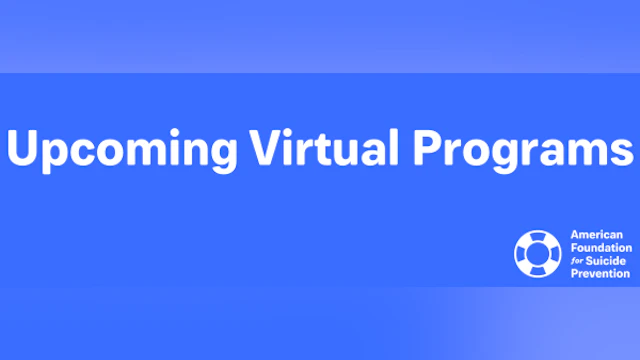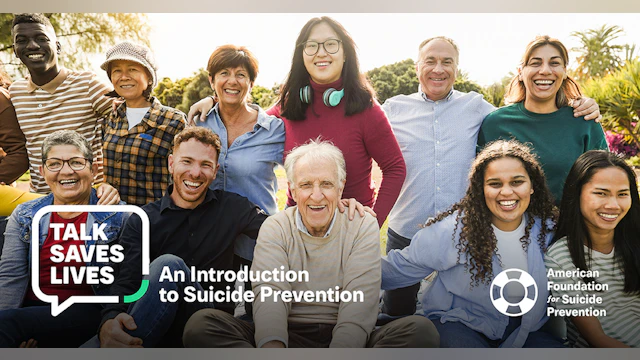Our education programs are designed to reach people where they are and provide them guidance for wherever they may be in their mental health journey.
Below please find information about upcoming programs offered by the AFSP Central Florida Chapter.
Suicide prevention isn’t just about supporting someone in a moment of intense crisis. It’s also about reaching people upstream, helping them to understand how mental health is an ongoing part of all our lives, and showing them how to proactively care for their own mental health while being there for their friends, family, neighbors and coworkers.
Virtual presentations listed below are free, however, registration is required. Please register using the url listed with each training. Don't forget to keep scrolling to learn about all upcoming opportunites.
To learn more about AFSP Central Florida Chapter Programs, how you can get invovled, or to request a program for your organization please click here to complete complete our Chapter Programs Request Form, or reach out to Jessica Toy at [email protected].


Friday, April 4, 2025 - 12 pm - 1:30 pm EST
Talk Saves Lives for the LGBTQIA+ Community
Talk Saves Lives: An Introduction to LGBTQ Suicide Prevention is a community-based presentation that covers what we know about this leading cause of death, the most up-to-date research on prevention, and what we can all do to fight suicide. Participants will learn about:
- Suicide risk and its unique considerations for LGBTQ people
- Recognizing suicide risk factors and warning signs for LGBTQ people
- Protective factors that can help lower the suicide rate
- The latest research related to LGBTQ suicide prevention
- How to seek and offer support for yourself or others
- Crisis resources and services for the LGBTQ community
- What communities can do to support LGBTQ people
Register here: http://lgbtqapril.attendease.com/
Tuesday, April 22, 2025 - 12 pm - 1:00 pm EST
Talk Saves Lives: An Introduction to Suicide Prevention
Talk Saves Lives: An Introduction to Suicide Prevention is AFSP’s 60-minute flagship suicide prevention education program that covers the scope of this leading cause of death, what the research has found to be the warning signs and risk factors of suicide, and the strategies that prevent it.
Topics covered include:
-Scope of the Problem: The latest data on suicide in the U.S.
-Research: Information from research on what causes people to consider suicide, how certain communities are impacted by suicide differently, as well as contributors to suicide risk
-Prevention: An understanding of the protective factors that lower suicide risk, and strategies for managing mental health and being proactive about self-care
- What You Can Do: Guidance on warning signs and behaviors to look for, how to start a conversation with someone you are concerned about, and ways to seek and offer support and crisis resources for yourself or others.
Register here: https://apriltsl.attendease.com/
